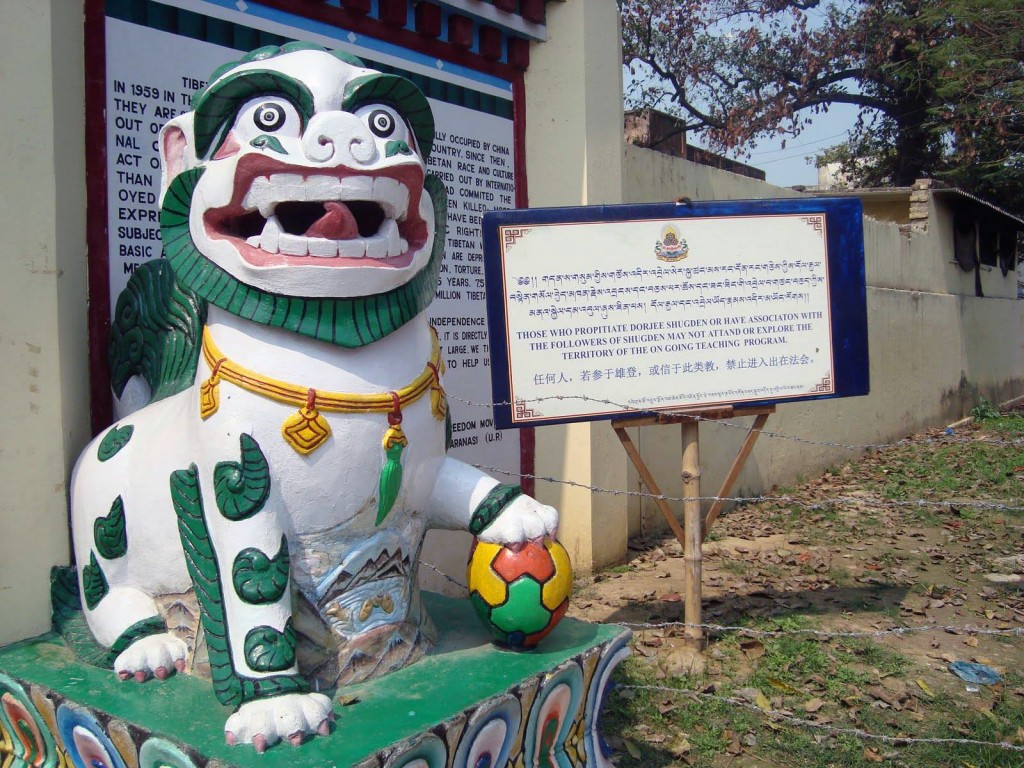“No one shall be subject to discrimination by any State, institution, group of persons, or person on grounds of religion or other beliefs.”
Article 2.1, Declaration On The Elimination Of All Forms Of Intolerance And Of Discrimination Based On Religion Or Belief, United Nations Resolution 36/55 (1981)
Throughout the Tibetan Exile Community, both in India and overseas, Tibetans have been required take public oaths not only to abandon worshipping Shugden but even to not associate with those who continue to do so.
Commonly the oaths pledge ‘never to have any relation on material or other levels’ with those who worship Shugden. Thus shops and restaurants routinely refuse service to Shugden Buddhists. Public institutions such as Hospitals, clinics and libraries carry signs warning Shugden Buddhists that they are not welcome.
Should a family be suspected of continuing their worship they are publicly denounced and a boycott of their shops etc. is called for. The only way to avoid this persecution is to publicly pledge to abandon Shugden worship.
The issuing of travel documentation is made conditional on receiving evidence of having taken the oath to abandon Shugden practice.
The videos and photos below provide evidence of these blatant abuses of human rights. Many independent observers describe the ‘massed anti-Shugden signature campaigns that sought to identify and ostracise Shugden practitioners’7.
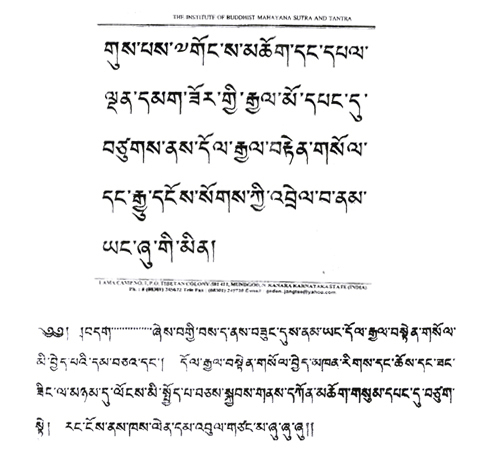
Lhamo) to never venerate and worship Dolgyal and to never have any relation on material and other levels with those who worship Dolgyal. Anti- Shugden Oath from the Institute of Buddhist Mahayana Sutra and Tantra, Karnataka, South India.
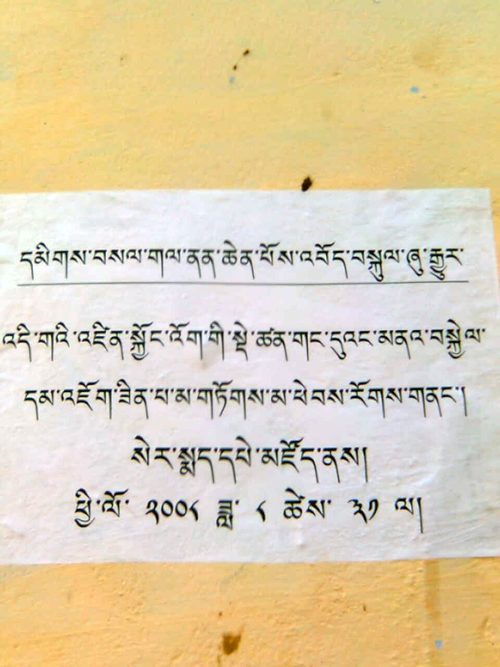
Sera Mey Library (August 31, 2008)
“Dharamshala officials were now going around Tibetan communities making people sign pledges that they would completely ostracise Shugden devotees, not share a meal with them or have anything to do with them in any way.”
- Jamyang Norbu, Founding Member of the Tibetan Youth Congress
Shugden practitioners describle their experience of osctracism by Tibetan exile community.
Video evidence of the segregation within the exiled Tibetan Community.
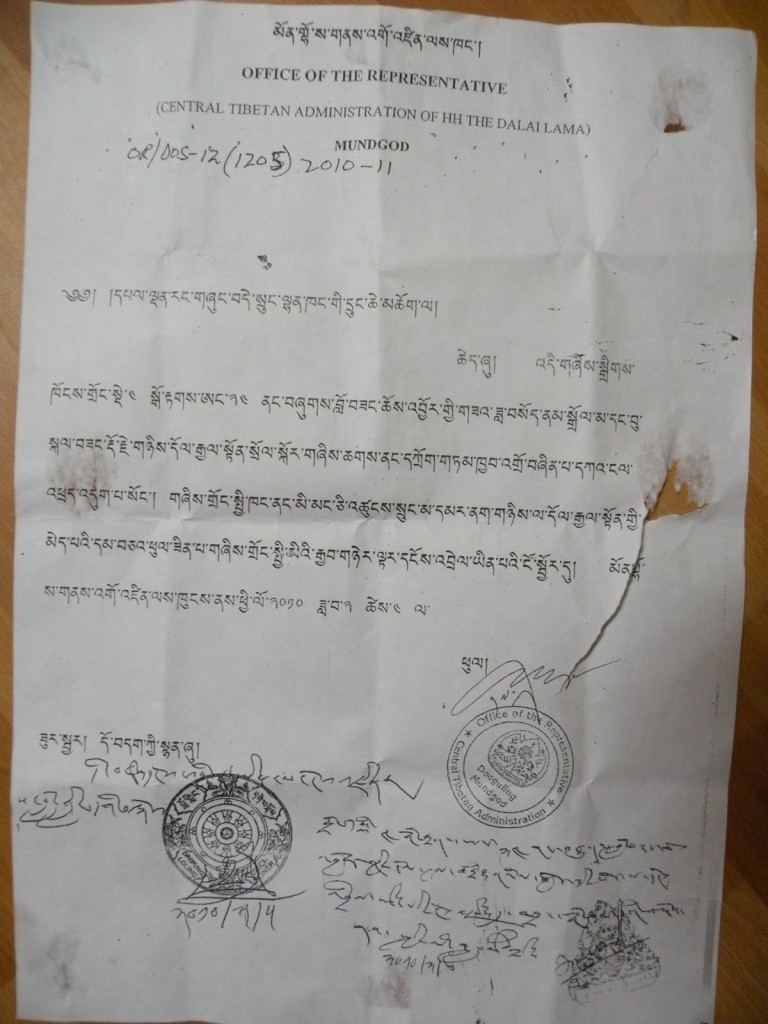
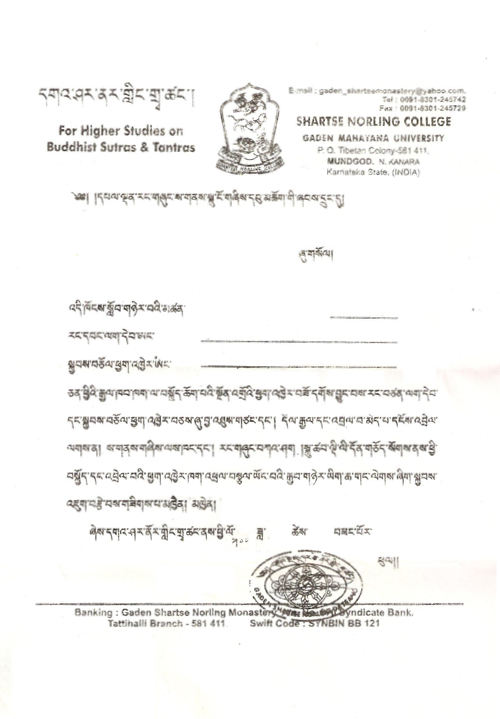
The name of the student………
Freedom Book No………………
Refugee Certificate No…………
For the preliminary certificate which enable him to travel abroad, he has the Yellow Book and refugee certificate, and he has no connection with Dholgyal (Shugden). As such, we humbly request Regional Tibetan office, Kashag (Tibetan Cabinet) and Delhi bureau office to kindly issue the supporting letters in order to get the certificates relating to traveling abroad as soon as possible.
Shartse Norling College
For monks to receive travel documents they need a letter affirming that they do not worship Shugden.
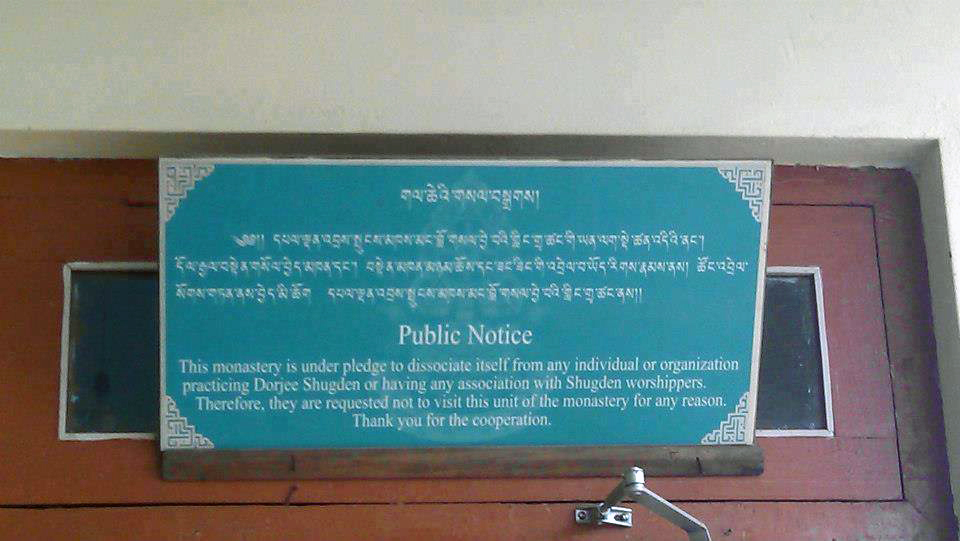
This monastery is under pledge to dissociate itself from any individual or organization practicing Dorjee Shugden or having any association with Shugden Worshippers. Therefore, they are requested not to visit this unit of the monastery for any reason. Thank you for the co-operation.
The Loseling Altruistic Medical Association (LAMA) is a charitable medical association registered with the government of Karnataka, India. This medical association runs Loseling Clinic, at Drepung Loseling Monastery, which is supposed to provide healthcare to all Tibetans, both ordained and lay.
